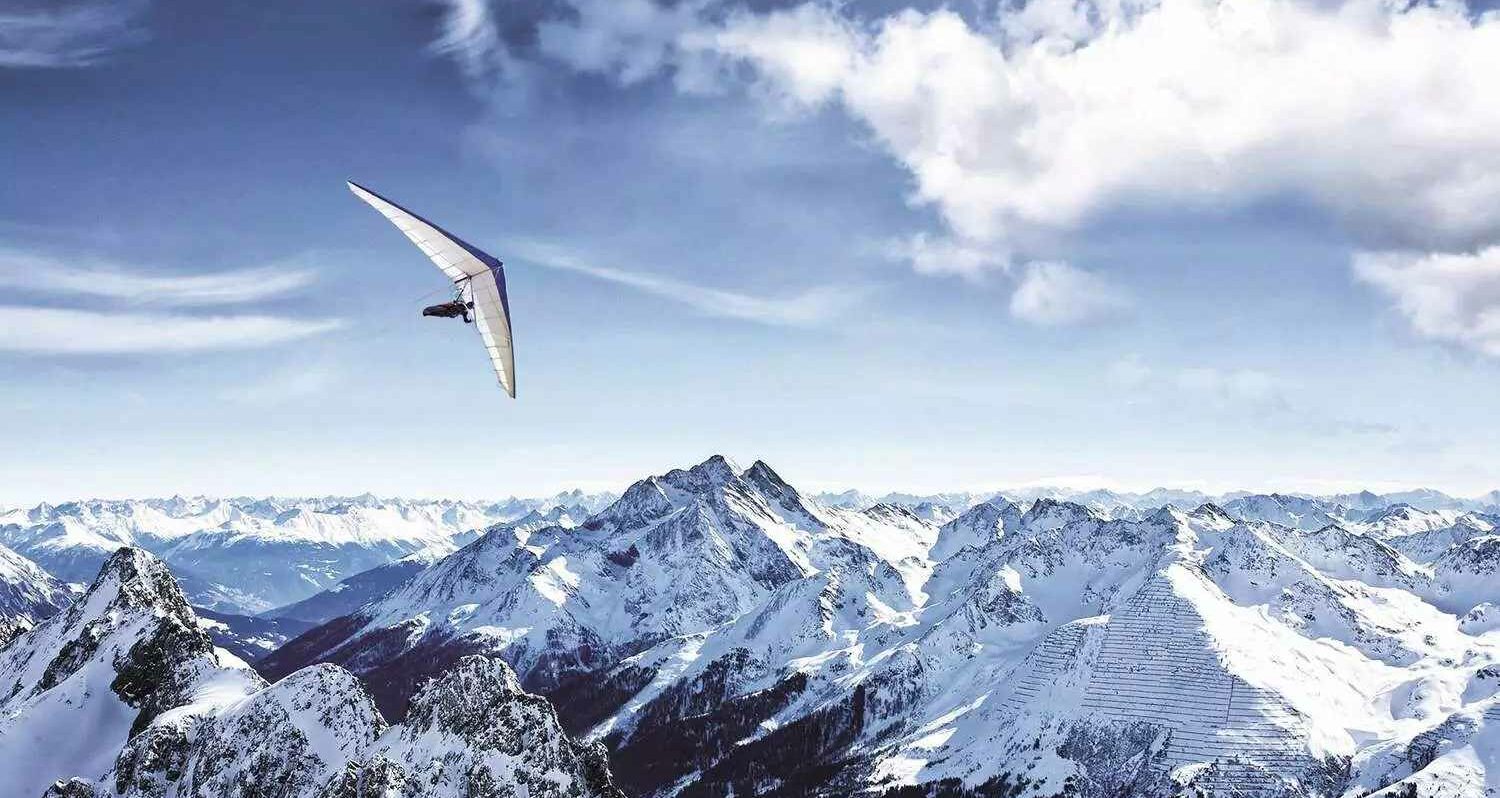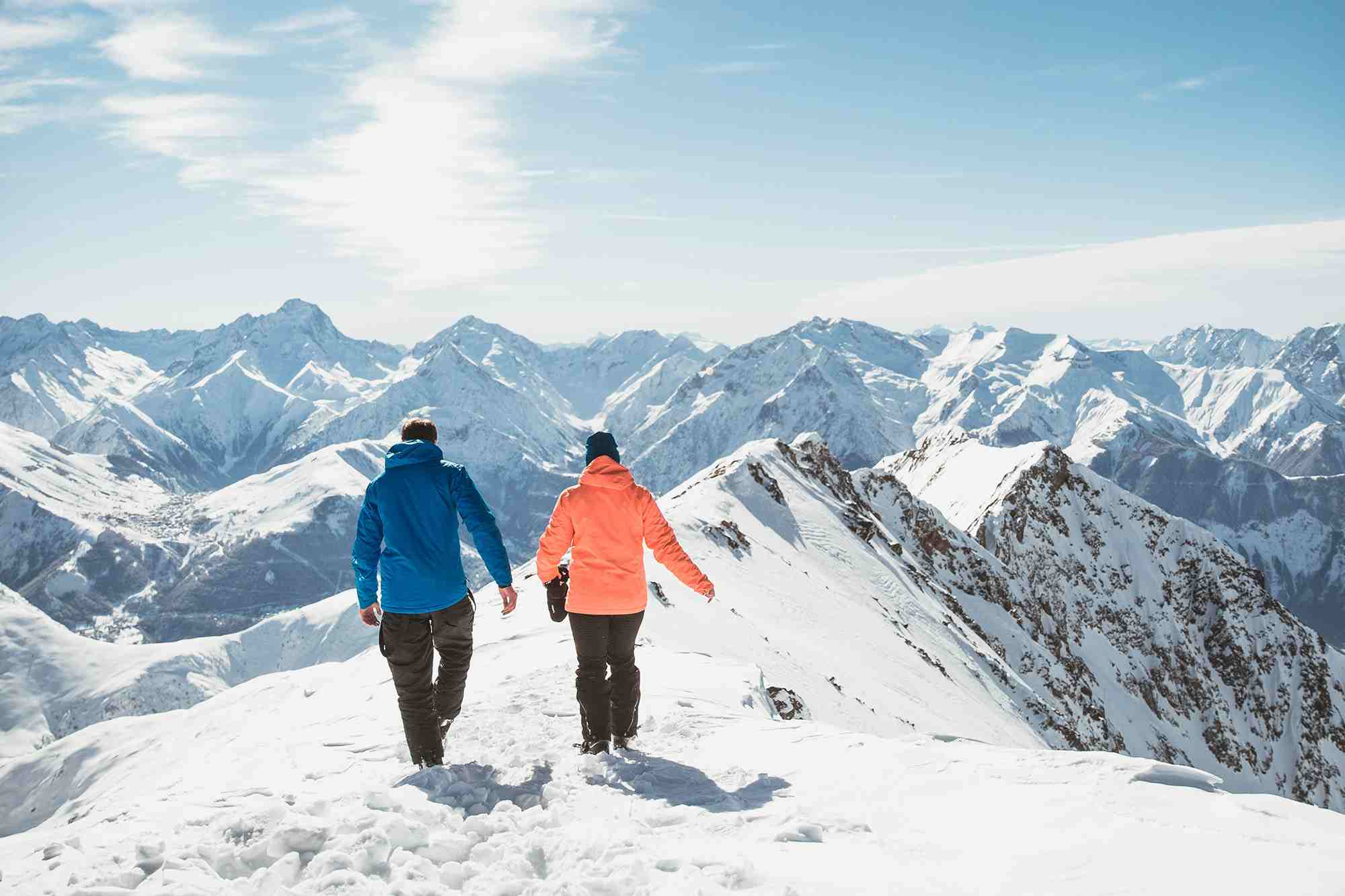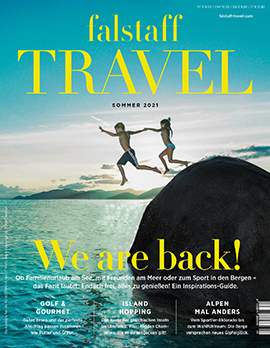
5 tips for your winter hike
This makes every hike an absolute dream.
11 December 2020
When the sun barely shows itself in winter, we are usually confronted with an uninvited guest: The winter blues. Jutta Mittermair from Gasteiner Mineralwasser explains why a hike through snowy and mountainous landscapes can work wonders here. If you want to do something good for your body and your psyche, then immerse yourself in the world of the mountains. But even if the idea of a winter hike sounds very romantic, you should pay attention to a few things.

Choose the right route
Just go for it? If you decide to go for a walk in the city, there's little to be said against it - but if you're heading for the mountains, you should plan your route. "Find out about the terrain and whether the path in question is passable at all in winter. The weather should also be taken into account when choosing and planning your route. If in doubt, opt for an easier route or postpone the hike if the weather is bad," advises Jutta Mittermair.
The right equipment
Anyone who has to complain about wet and cold feet while hiking will quickly want to turn back. Therefore, the right equipment is essential for a hike - especially in winter. No matter where you are: waterproof, lined footwear that offers a stable grip should not be missing in any case - as well as clothing according to the onion principle: hat, scarf and gloves as well as a weather-resistant backpack.
Drink enough fluids
Also, or precisely because you feel less thirsty in the cold, you should make sure that you drink enough fluids. There is no standard recommendation for how much you should drink when winter hiking. "The optimal fluid intake depends on numerous factors, such as the hiking route, the altitude metres and, last but not least, your own physical conditions," explains Mittermair. On more demanding routes, you can expect to lose up to one litre of sweat per hour, and you should increase your fluid intake accordingly. It is also advisable to drink regularly and in small sips, as the human body cannot store liquid in large quantities.
Drink the right thing
Natural mineral water is the ideal thirst quencher - especially when hiking. Experts recommend natural mineral water with little to no carbonic acid, as it is not only refreshing but also digestible. It also has a number of nutritional benefits, as Jutta Mittermair explains: "Natural mineral water contains a number of important minerals and trace elements. These include calcium, which is important for bone formation, chromium as a trace element for sugar, fat and protein metabolism, iron, which is essential for oxygen supply, or lithium, which is said to be particularly beneficial for mental health and thus ideal in the fight against the winter blues." On longer winter hikes, however, a good insulating bottle with a hot drink should also be in the luggage to warm up in between.
COVID-19: New rules for the winter hike
In the Corona year 2020, many things are different - this also affects mountain sports, as Jutta Mittermair knows: "No matter whether you go for a walk on the hill around the corner or climb a mountain as a real hiking professional: The important thing here in times of pandemic is to keep your distance, minimise risks and stick to the Corona rules currently in force."
With these tips, nothing stands in the way of a refreshing and soothing winter hike.

Picture Credits: Gasteiner Mineral Water, Robert Maybach, Yente Van Eynde / Pexels

